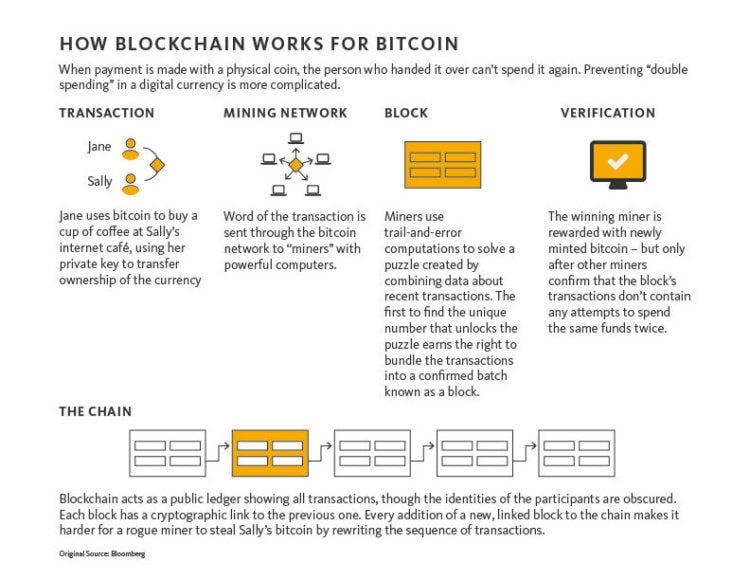With 2018 just weeks away, there has been much discussion surrounding bitcoin’s potential impact, and the high hopes of blockchain technology for boosting efficiency and competitive advantage for businesses. Many are asking…is this ‘magical technology’ just hype, or can it produce tangible results?
Blockchain technology has definitely created much abstract hype about the ways it will change business, as well as confusion around how the technology actually works. Its association with digital currency such as bitcoin simply compounds this mystery.
Increasingly, it is seems to be challenging for those operating in the field of agriculture, especially with a mindset to improve sustainability, and track resources, certifications, and records. There may be, in some instances, concerns about the validity of the records and certifications, and if they are safely kept with proper efficacy.
The Potential of Blockchain Solutions
Contributed by: Ron Rash, Organic Natural Enterprises, LLC
The origin of blockchain stems from a programmer who was looking for a mechanism to control the flow and valuation of bitcoins (a crypto-currency). Blockchains are an open source set of books with transactions being recorded, and confirmed, anonymously. Like a multiple set of books written in ink (or a ledger), once the transaction has been confirmed it cannot be changed. While some have compared it to little more than a sophisticated data base, it can’t be denied that blockchain has provoked some interesting uses for agricultural sustainability, and the industry is trying to interpret how it can be employed in the field.
Many blockchain experts have weighed in on its potential, and have contended that the use of blockchains for crypto-currencies is limited because such application tends to be slow and energy-hungry. At the same time, blockchains hold huge promise as permanent, tamper-proof databases for any kind of data, shared by a community and owned by no one. This makes it possible to track and verify transactions and interactions without having a centralized authority.
A report by Bloomberg online details the workings of the blockchain in authenticating bitcoin transactions. (See illustration created by Bloomberg.)

The Application of Blockchains in Ag
Bitcoin.com recently made a case for transformation of the agriculture economy, which according to the article, employs roughly 40% of the global workforce. It also points out that blockchain is already being used by the industry.
Blockchains could be used to improve sustainability by enabling growers, processors, manufacturers, retailers and consumers to employ a framework wherein the participants do not know one another, nor necessarily trust one another.
Blockchain Usage for Transparency and Supply Chain
One possible use for the blockchain in ag might be to verify organically grown, processed or manufactured food stuffs in a transparent, open environment (in direct support of sustainability).
According to Kenneth Dallmier of the Clarkson Grain Co., an organic corn and soybean distributor and processor in central Illinois and a member of the OTA task force, “Organic producers, companies and American consumers could improve compliance if methods such as blockchain technology were used to complement existing verification methods.“
Jake Lewin, president of California Certified Organic Farmers, weighs in by stating, “The USDA’s organic verification and compliance process – notwithstanding needed technological innovations – is arguably the most vigorous in the world.”
A look at supply chain efficacy through employment of a blockchain is one way to understand how the technology can improve transparency and provide product verification.
The Benefits of Blockchain
According to loaddelivered.com, the benefits of blockchain are:
- Recording the quantity and transfer of assets—like pallets, trailers, containers, etc.—as they move between supply chain nodes
- Tracking purchase orders, change orders, receipts, shipment notifications, or other trade-related documents
- Assigning or verifying certifications or certain properties of physical products; for example, determining if a food product is organic or fair trade
- Linking physical goods to serial numbers, bar codes, digital tags like RFID, etc.
- Sharing information about manufacturing process, assembly, delivery, and maintenance of products with suppliers and vendors
As organic food and products continue to become more and more important to ecologically astute consumers, agriculture is going to need better, faster, smarter systems to assure sustainability, transparency, certification, and food safety (among other benefits) that blockchains could provide.
Your K·Coe Isom advisor can provide you with more information on the applicability and benefits of blockchain technology for your business.








